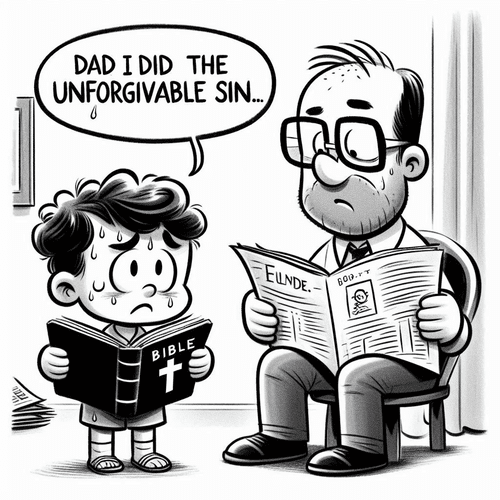The Reformation’s Five ‘Solas’: Cornerstones of Salvation
IMAGE CAPTION: When it all began: The glorious Reformation began with Martin Luther nailing his 95 Theses to a cathedral door in 1517
Reclaiming the Gospel
The Protestant Reformation’s Five ‘Solas’: The Reformation was a monumental movement that reshaped Western Christianity and sent ripples across the world. At its heart was a daring challenge to the flawed doctrines and authoritarian abuses of the Roman Catholic Church. Through their united efforts, the Reformers reclaimed the gospel’s pure, glorious doctrine of salvation by grace alone.
Led by stalwarts like Martin Luther and John Calvin, the Reformers with their rallying cry of “Sola Scriptura” (Scripture Alone) resounded the call to make the Bible the supreme authority for faith and practice in the church. No longer would human traditions and papal decrees usurp God’s inerrant, complete Word. While not explicitly formulated together during the Reformation, the Solas were later distilled from the Reformers’ collective teachings, reflecting the convictions of theologians like Huldrych Zwingli, Philip Melanchthon, John Knox, Thomas Cranmer and William Tyndale.
Crystallizing this biblical emphasis were the five Latin Solas (meaning “alone”)—rays emanating the guiding light of truth with pinpoint precision. These five Solas formed the bedrock truths recovering the apostolic gospel of salvation. Let us explore what they are and why they remain immensely vital:
Sola Scriptura (Scripture Alone)
With prophetic boldness, the Reformers rejected any authority being placed over or equated to the Bible. Scripture alone reigned as the inspired, sufficient and infallible source of God’s special revelation to humanity (2 Timothy 3:16-17). Not Scripture plus tradition or papal proclamations, but Scripture alone held the supreme, binding truth about salvation.
Sola Gratia (Grace Alone)
The Bible message rang out unequivocally—humanity is radically depraved, unable to earn favour with God through any works or merits of our own (Ephesians 2:8-9). Against the Catholic system of indulgences and obedience-based righteousness, rings out this message that fallen man can find salvation by God’s grace alone through His unmerited favour.
Sola Fide (Faith Alone)
How then do we receive this amazing grace? The Reformers upheld the biblical truth it is through faith alone in Christ’s finished work, not our feeble efforts (Romans 3:28). Real faith isn’t mere intellectual assent but a repentant, spiritual rebirth that leads to transformation (James 2:17). Yet even this faith isn’t our own doing but a gracious gift from God (Ephesians 2:8).
Solus Christus (Christ Alone)
At the blazing centre of this theological reinvigoration was the supreme truth that salvation is found in Christ alone as the singular Mediator between God and man (1 Timothy 2:5). His death alone pleases the Father and propitiates for sins. No human priests, saints or Mary can offer salvific mediation. Christ alone is the Way, Truth and Life (John 14:6).
Soli Deo Gloria (Glory to God Alone)
Ultimately, God alone deserves all glory for the wondrous drama and work of redemption. From predestination to justification to sanctification to glorification, it’s all about magnifying His infinite majesty, wisdom, grace and power in radically restoring fallen humanity (Romans 11:36). Salvation exalts and elevates God alone as the Creator, Sustainer and Redeemer.
The Reformation’s Five ‘Solas’ weren’t just catchy phrases. They were powerful truths that stripped away years of man-made rules in the church.
Today, these principles still matter. They remind us that salvation comes from God’s kindness through Jesus. Our job is to trust Him, follow the Bible, and live for God’s glory.
If you feel weighed down by religious rules or traditions, let the Reformation’s Five ‘Solas’ light your way. They show us that salvation is God’s amazing gift from start to finish!
In a world where it’s easy to lose sight of what’s important, the Reformation’s Five ‘Solas’ keep us focused on the heart of the Christian faith. They’re like five bright flames, keeping the true message of the gospel burning strong.
Editor's Pick

The One Man Mystery in Acts 17:26: Is It Adam Or Noah?
When the Apostle Paul stood before the philosophers at Mars Hill, he delivered an insightful statement about human unity: “And [...]

Megiddo Or Jerusalem: Where Did King Josiah Die?
Recent archaeological discoveries at Tel Megiddo continue to reveal evidence of Egyptian military presence during the late 7th century BC, [...]

Losing Your Life Vs Wasting It: How Are the Two Different?
AND WHY DID JESUS PRAISE THE FORMER? Jesus spoke one of the most perplexing statements in Scripture: “For whoever wants [...]

Can Christians Be Demon Possessed? What the Bible Teaches
Perhaps you’ve witnessed disturbing behavior in a professing Christian, or you’ve struggled with persistent sin and wondered if something darker [...]

Sacred Fury: What Christ’s Temple Cleansing Truly Means
Mark 11 records the crack of a handmade whip that echoed through the temple corridors. Tables crashed to the ground, [...]

Did Jesus Cleanse the Temple Twice?
OR DID JOHN DISAGREE WITH THE SYNOPTICS ON TIMING? One of sceptics’ favourite "gotcha" questions targets what they see as [...]

Self-Authentication: Why Scripture Doesn’t Need External Validation
"How can the Bible prove itself? Isn't that circular reasoning?" This objection echoes through university classrooms, coffee shop discussions, and [...]

Do Christians Need Holy Shrines? Why the Reformed Answer Is No
Walk into a medieval cathedral and you'll encounter ornate shrines, gilded reliquaries, and designated "holy places" where pilgrims gather to [...]

I Want To Believe, But Can’t: What Do I Do?
"I want to believe in God. I really do. But I just can't seem to make it happen. I've tried [...]

BC 1446 or 1250: When Did the Exodus Really Happen?
WHY REFORMED SCHOLARS SUPPORT THE EARLY DATE Many a critic makes the claim: “Archaeology has disproven the biblical account [...]
SUPPORT US:
Feel the Holy Spirit's gentle nudge to partner with us?
Donate Online:
Account Name: TRUTHS TO DIE FOR FOUNDATION
Account Number: 10243565459
Bank IFSC: IDFB0043391
Bank Name: IDFC FIRST BANK






